MercoPress. South Atlantic News Agency
Tag: Car Industry
-
Thursday, January 31st 2019 - 09:30 UTC
UK car industry on “red alert”: Brexit uncertainty had done enormous damage
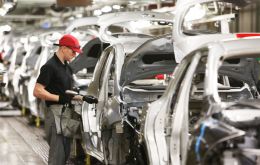
Investment in the UK car sector almost halved last year and output tumbled as Brexit fears put firms on “red alert”, the industry's trade body said. Inward investment fell 46.5% to £588.6m last year from £1.1bn in 2017, the Society of Motor Manufacturers and Traders (SMMT) says.
-
Thursday, January 10th 2019 - 09:07 UTC
World's biggest vehicle market faces first annual sales fall in twenty years
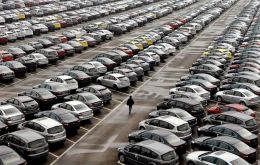
Car sales in China, the world's biggest vehicle market, have seen their first annual fall in twenty years. Sales fell 6% to 22.7 million units in 2018, according to the China Passenger Car Association (CPCA).
-
Saturday, October 6th 2018 - 09:06 UTC
Brazilian auto industry production hit by Argentine recession
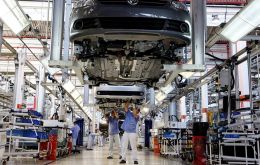
Brazilian automakers are facing the prospect of a sharp drop in exports this year as a crisis in neighboring Argentina hampers the prospects of car sales abroad, the national automakers’ association said on Friday.
-
Tuesday, July 3rd 2018 - 08:27 UTC
EU/US auto industry dispute intensifies and prepares for worst case scenario

European Union on Monday slammed the Trump administration for considering tariffs on auto imports, saying they could lead to global retaliation against some US$ 300 billion in U.S. goods amid signs of a brewing trade war.
-
Monday, July 2nd 2018 - 08:31 UTC
Leading world car makers urge US not to impose tariffs on auto imports

BMW and Hyundai Motor urged the U.S. not to impose tariffs on auto imports, joining General Motors Co. in pressing their case to the Commerce Department even as a top aide to President Donald Trump dismissed the concerns as “smoke and mirrors.”
-
Friday, June 29th 2018 - 09:13 UTC
Beijing eases limits on foreign investment in banks, car industry and agriculture
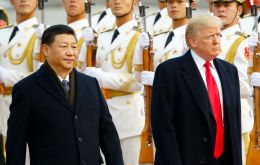
The Chinese government has eased rules that limit foreign investment in the country's banks, car industry and agriculture. The barriers have drawn criticism from trading partners, including the US. The Trump administration cited the rules as an example of unfair practices when it announced plans for tariffs on Chinese goods earlier this year.
-
Wednesday, April 18th 2018 - 08:32 UTC
China opens its car manufacturing and market to foreign ownership
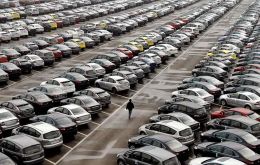
China will allow full foreign ownership of car firms by 2022 in a move that could open up the world's biggest car market. The plans will change rules that require global carmakers to work through state-owned partners. The US says this forces them to share technology with potential competitors.
-
Thursday, March 8th 2018 - 09:28 UTC
Chinese carmaker acquires US$ 9bn stake in Mercedes Benz, expecting to share auto technology

Li Shufu, chairman of Chinese carmaker Geely, is making waves in the global auto market after buying a US$ 9 billion stake in Germany’s Daimler. Li, 54, the son of a farmer from China’s Zhejiang province, has led a major acquisition push globally since 2010, when he took over Swedish car brand Volvo from Ford Motor, US$ 1.8 billion deal.
-
Thursday, March 1st 2018 - 09:53 UTC
UK car industry “thousands of jobs” at risk if UK fails to reach a Brexit deal
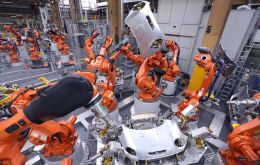
Failing to strike a Brexit deal would put “hundreds of thousands” of jobs in the car industry at risk, MPs have said. The Business, Energy and Industrial Strategy Committee said continued close alignment with the EU would ensure the industry's survival. And it warned the introduction of trade barriers would leave the sector unable to compete with its European rivals.
